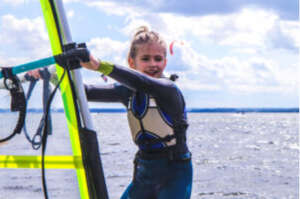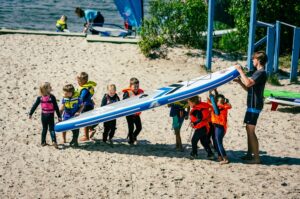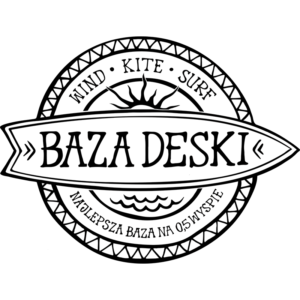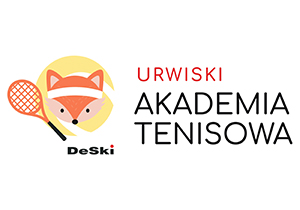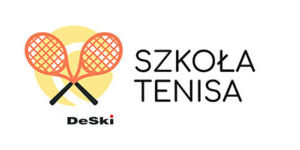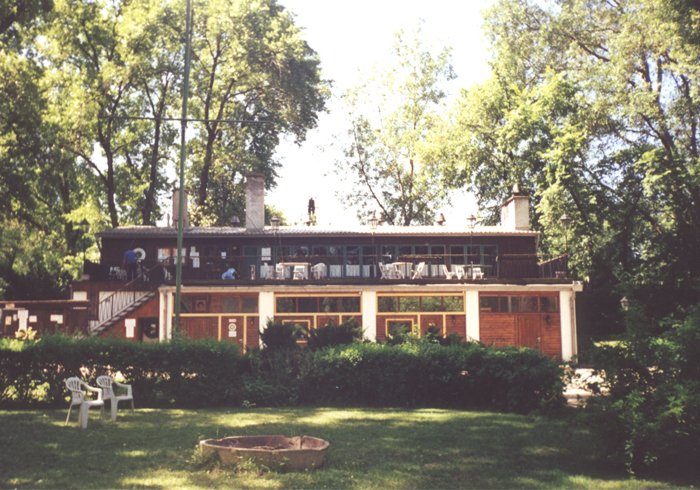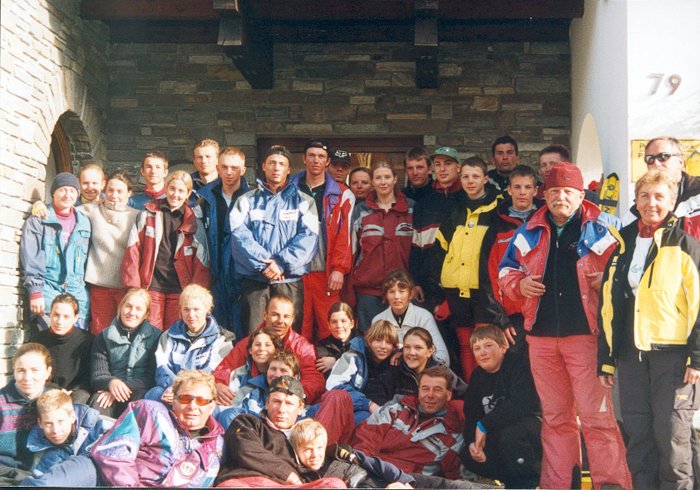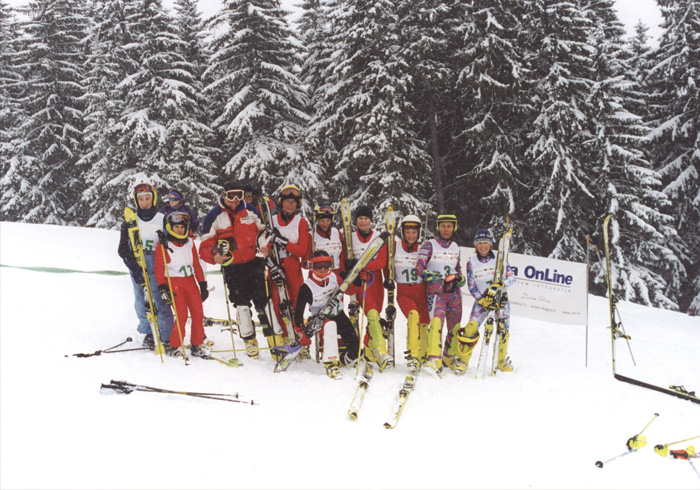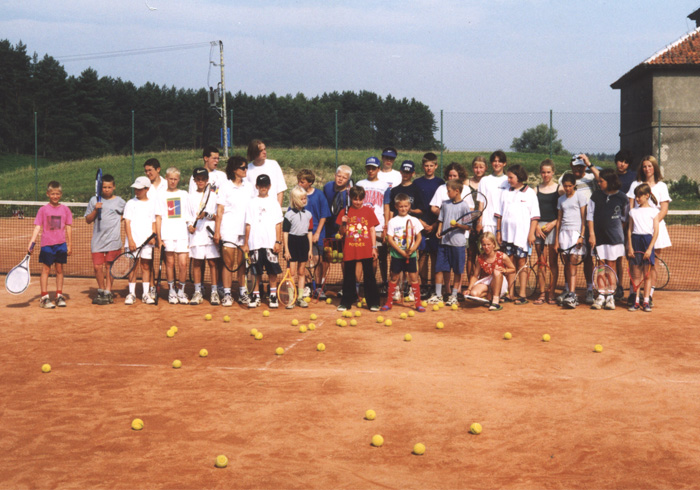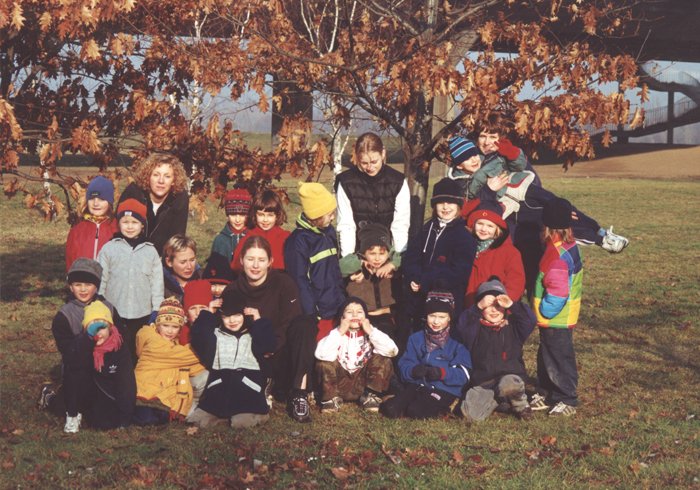The history of the Warszawskie Towarzystwo Sportowe DeSki and its future plans.
The idea of founding a sports club was conceived in the early 1980s in the environment of the Academic Ski Club Warsaw (AKN Warsaw), among activists, skiing instructors, athletes representing AKN, and students from Warsaw universities in academic competitions.
The club’s founders decided to leverage their experience and create opportunities for children and youth to engage in sports, especially skiing, tennis, and windsurfing. The formalities associated with establishing WTS DeSki took several years and were successfully concluded in the spring of 1986. According to the club’s statute, its activities are based on the voluntary work of its members.
In the early years of its operation, the club was based in the Cultural House of the Warsaw Housing Cooperative on Żoliborz, and later in a rented space on Gdańska Street in Warsaw.
Starting from the summer of 1986, a tennis section was organized, sailing and windsurfing camps were held, and in the autumn of 1986, the skiing section began its activities.
Ski training and preparations for the season were conducted in Warsaw, while training camps were held at the base in Koninki near Mszana Dolna. Despite the “life difficulties” of those years, DeSki developed dynamically from the beginning. Over three hundred children, youth, and adults participated in training sessions and camps throughout the year. Since the early 1990s, skiing training camps have been organized in the Alps. The training program is comprehensive, catering to beginners, competitive athletes, and instructor training. DeSki athletes compete and win medals in national and international competitions, representing Poland in various age categories. Many DeSki alumni have obtained skiing instructor qualifications from the Polish Ski Association (PZN), and some have international ISIA qualifications. The majority of them work in the club, training the next generations of Warsaw skiers.
Since 1989, DeSki has had a summer windsurfing base on the Hel Peninsula, currently located at the Solar camp, where approximately one hundred people are trained during the summer season.
For twenty years, hundreds of people have benefited from the club’s training activities throughout the year.
In 1990, the club’s headquarters moved to the TKKF Horyzont center on Cypl Czerniakowski. General development activities of the skiing section also took place here. Starting from the end of 1989, a liquidation commission of RSW Prasa-Książka_Ruch managed the center based on a decree. Through a tripartite agreement between RSW, municipal authorities, and the club, WTS DeSki received the TKKF Horyzont area in 1993, totaling 16,000 square meters, on a perpetual lease. The club’s premises included a club building, outbuildings, all in very poor technical condition, an inactive swimming pool to be liquidated, and one clay tennis court. Right from the beginning of managing the center, DeSki systematically renovated existing facilities, particularly the club building, which now houses a cafe-restaurant, the club office, changing rooms, and a tennis service. Six clay courts were built, and all seven were covered with a balloon structure, enabling year-round use.
Significant effort was invested in maintaining and nurturing the greenery on the center’s grounds.
This infrastructure enabled the rapid development of the tennis section, with space for individual players and athletes training in all age categories. DeSki is currently one of the leading tennis clubs in Poland, and the list of sporting achievements of DeSki representatives is long and impressive.
The club organizes tennis tournaments, from club-level to professional international tournaments. On the center’s premises, DeSki also organizes sports and recreational events, bringing together various communities.
The continued growth of DeSki and meeting new standards, including those set by the European Union, require a professional approach to management, training activities, and business. New investments are necessary. An analysis of needs, location, and climatic conditions directed investments toward:
The construction of a new building housing six squash courts, office facilities, an exercise room, a regeneration room, changing rooms. The construction of four modern, synthetic-surface tennis courts, with a permanent structure covering them (a hall). In 2006, a competition was held for the development of the DeSki area. The project was developed by the studio under the direction of architect Andrzej Bulanda, and the building permit application was submitted in March 2007. Construction was planned to start in spring 2008. The completion of the investment depends on the funds allocated for this purpose.
Then came a period of increased and intense work. Its result was obtaining an investment loan from Bank PKO BP and recognition by the Ministry of Sports of the new four-court tennis hall as an investment of particular importance for sports. The investment loan, a grant from the Ministry of Sports, and the association’s own funds allowed closing the investment budget and gave the green light to start construction. The construction was taken on by the ROR Biuro Budowlane company of Maciej Rzeczkowski and Sławomir Robiński. The result of their work? You can judge for yourselves.
The first stage, which included the new club building with six top-quality squash courts, two general exercise rooms, a sales area, new changing rooms, office rooms, a spacious hall, reception, and technical rooms, was completed at the end of August 2010.
The second stage – an advanced, technologically-equipped four-court tennis hall with a Decoturf hard surface (the same as the famous Flushing Meadows courts in New York, where one of the Grand Slam tournaments is played) – concluded in March 2014.
Thus, what seemed impossible or even incredible to many, thanks to the determination and titanic work of a group of people, became a reality. Today, we can all take pride in a splendid center with top-quality sports infrastructure, featuring fourteen tennis and squash courts, a sports equipment store by PM Sport with the best skiing equipment from Rossignol, Dynastar, Lange, Poc, etc., a PROS gym, a skiing service, a beautiful garden where sports activities take place and various companies have chosen it for their family picnics, the atmospheric and delicious DESKI restaurant, and above all, an irreplaceable atmosphere of physical activity, physical culture, and tranquility in the heart of bustling Warsaw.


